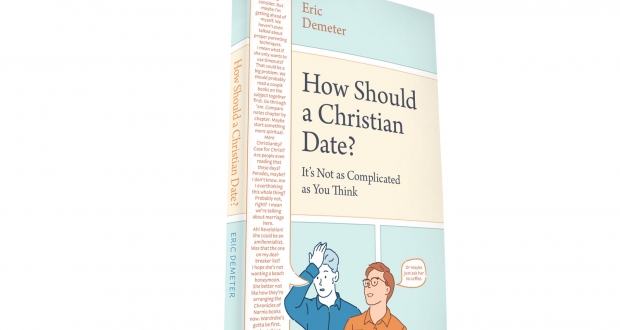Get Unstuck From Indecision
There’s no better test for chutzpah than for a young lad to accost a group of cheerleaders on his own. I welcomed the solo challenge but was afraid. My juvenile goal was simple: Infiltrate the sea of pompoms and turn on the charm. My Friday night plans depended on it.
But I could see a low-hanging rope that separated me from them–only a small barrier that kept me from the glory of winning a date. “Would I jump or step over the rope?” I asked myself. Yet mind was like scrambled eggs. Inevitably I didn’t choose. I became entangled in it and ate the ground hard—a high schooler’s worst nightmare!
Not making a choice can have serious consequences.
Losing my dignity momentarily was embarrassing and humorous! Not so funny, however, is a Western culture that often presents us with an endless field of options. It can be paralyzing. What college major should I choose? In which city should I live? Which is the best job to accept? Whom should I marry? Those questions (any many more) plague us.
Each indecision adds another strand to our internal ball of twine. And it can be overwhelming.
And then there’s FOMO (Fear of Missing Out). FOMO is that part of us desires to keep our every option and avenue open at all times. It’s a veritable disease. Why? Indecision camps us at a crossroads when it should only be a short stay. It’s a cure—or so we think—to delay deciding.
But life is too short to live at intersections. The goal is to choose wisely, not indefinitely. How, then, do we move from postponement to progress?
For Followers of Christ, we often turn to the tried-and-true practices of our faith. We pray, fast, and seek verses in the Bible that speak of God’s direction. This is the exact place to begin. Unfortunately, there is no wizardry in spiritual disciplines. Formulas to hear God’s voice don’t exist. Scripture shows us a way of life but it’s not a magic eight ball.
Doing our own spiritual due diligence is important, however. We always need to seek the Lord, pray, and even fast when necessary. God does speak, of course. But what happens when we don’t receive a direct answer? Where do we go next? When there’s no moral component to the question, how do we choose when all options seem godly?
Let’s consider the following points.
There’s Always Loss in Choosing
First, we must consider the emotional component in making decisions. The feeling of loss is inevitable in making choices. In economics it’s called opportunity cost. Opportunity cost is the cost of what we missed out on by deciding to do something else. For example, the opportunity cost of going to the movies with Fran is that I couldn’t get drinks with Fred. Spending time with Fred is the opportunity cost.
Or, the opportunity cost of moving to Seattle is that I didn’t get to live in San Francisco. Not residing in San Francisco is the opportunity cost.
You get the idea.
The cost of eliminating options can be painful. The words “decide” and “incise” actually originate from the Latin word, “caedere”, which means “to cut”. Making choices cut-off other opportunities. It hurts. This is normal.
It’s good for us to make a habit of removing choices. Over time the feeling of relief replaces any feeling of regret.
Use A.I.R.E.S.
As we mature in our faith, it appears God leaves more and more decisions in our hands. In these cases, the acronym of A.I.R.E.S. helps with the discernment process.
Authority
Who or what is your authority? What person or what knowledge do you rely upon to help you make decisions? What information holds the most credence in your life? Followers of Christ often rely upon the Bible (for good reason).
Intuition
Your intuition is your gut feeling. Some people have certainty about a decision simply because they have an intrinsic knowledge. Christians could rightly name this the Holy Spirit.
Reason
Reason is logic, but, more than that, it’s a thoughtful consideration of the path ahead. Proverbs 4:26 states, “Give careful thought to the paths for your feet and be steadfast in all your ways.”
Experience
How do your past events inform your future? What has life taught you from your good and bad decisions? What trends do you see in your life?
Sages
It’s important to invite outside wisdom into your life—those with similar experiences or those who have walked beside you for a while. Proverbs 15:22 states, “Plans fail for lack of counsel, but with many advisers they succeed.”
As you go through the acronym, pray and look for strands of commonality among each letter. If necessary, repeat the process as many times as needed.
Trust Will Always Be Required
Whatever you end up choosing, it will require faith. We’ll need to trust God that He will use our decision—a.k.a., “cutting-off other options— for His glory and our joy. The Bible states that “Without faith it is impossible to please God (Hebrews 11:6).
So forget about perfect outcomes because imperfect ones are life’s norm. There is no perfect person, or job, or area to live. If you make a bad choice rest assured God will redeem it. In fact, much wisdom is gained from making wrong decisions.
But why doesn’t God send us more obvious signs? People like Gideon, Moses, and the Apostle Paul received divine confirmation. I’m jealous. Who wouldn’t believe it was heaven calling if a burning bush began speaking?
My friend Vincent believes God spoke to him. He was in angst about marrying his fiancé. As he was driving, he suddenly noticed a cow shaking his head side-to-side, took this as a “no,” and canceled the wedding.
Go figure.
We may not get a conclusive answer from the Lord. But God cares as much about the process of decision-making as the actual decision. Why? Because as we consistently knock on His door it draws us closer to Him.
So keep inviting Him into the options you have.
Use tools like A.I.R.E.S. and see where the answers lead you. And don’t forget to deal with the emotional loss of making a decision. “Buyer’s remorse” is a part of life. But greater than that is the relief of choosing.
Don’t be like me and let your indecision cause you to crash in front of a group of cheerleaders.











Leave a Reply